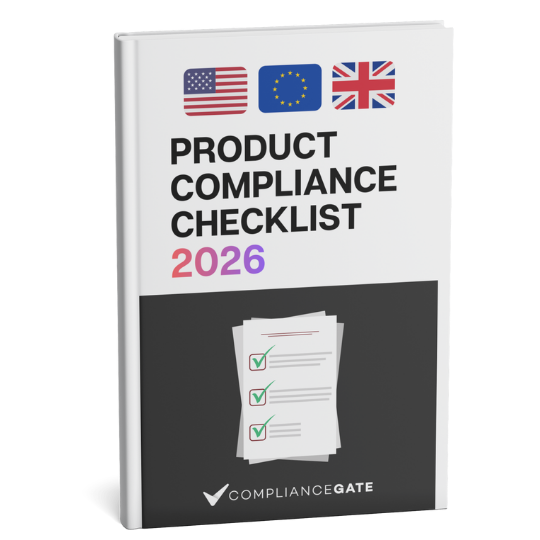
Pumps imported or imported for use in the United States are subject to various compliance requirements. In this guide, we take a closer look at the Energy Conservation Program, FCC requirements contained in 49 CFR Part 15, and other requirements that are relevant to pumps in the United States.
In addition, we explain why product safety standards, such as UL 778, are relevant when manufacturing or importing pumps.
Content Overview

FREE CONSULTATION CALL (30 MIN)
 Ask questions about compliance requirements
Ask questions about compliance requirements Countries/markets:
Countries/markets:
 Learn how we can help your business
Learn how we can help your business
You will speak with:Ivan Malloci or John Vinod Khiatani
Which US regulations apply to pumps?
This section lists selected compliance requirements for pumps in the United States. Note that additional requirements can apply. Further, the listed requirements are relevant to the following types of pumps:
- Heat pumps that are used in indoor climate control systems
- Pumps used in circulating water heaters
- Circulator pumps
- Dedicated-purpose pool pumps
- Water-source heat pumps
- Air-Source heat pumps
- Geothermal heat pumps
- Heat pump water heaters
- Pool pumps
- Hydraulic pumps used in hydraulic forging presses
- Pumps and self-closing faucets (for dispensing class I liquids)
- Pumps in storage and handling of anhydrous ammonia
- Motor-operated water pumps
- Electrically operated pumps for nonflammable liquids
- Pumps for oil-burning appliances
- Electrical heat pumps
- Rotary positive displacement pumps
- Mechanical pump dispensers
- Oil diffusion pumps
- Centrifugal pump
- Shipboard pump
- Air-operated pump
- Rotodynamic pumps
- Controlled-volume metering pumps
| Regulations | Relevancy |
| 10 CFR PART 430 – ENERGY CONSERVATION PROGRAM FOR CONSUMER PRODUCTS | 10 CFR Part 430 sets test procedures and energy-efficient standards for appliances and equipment that are consumer products.
Here are some examples of different types of pumps that are covered by this part:
|
| 10 CFR Part 431 – ENERGY EFFICIENCY PROGRAM FOR CERTAIN COMMERCIAL AND INDUSTRIAL EQUIPMENT | 10 CFR Part 431 contains test procedures and energy efficiency requirements for certain commercial and industrial equipment.
Here are some examples of the different types of pumps that are covered by this part:
|
| 10 CFR PART 429 – CERTIFICATION, COMPLIANCE, AND ENFORCEMENT FOR CONSUMER PRODUCTS AND COMMERCIAL AND INDUSTRIAL EQUIPMENT | 10 CFR Part 429 contains certification requirements for consumer products, and commercial and industrial equipment covered by 10 CFR Parts 430 and 431.
Thus, this part is relevant to pump products covered by 10 CFR Parts 430 and 431. |
| 47 CFR PART 15 – RADIO FREQUENCY DEVICES – Unintentional Radiators | Most electronics, such as those that come with digital technologies, emit radio frequencies, even if unintentionally.
This also includes some types of pumps (e.g. pumps with an electronic display). To ensure that such pumps do not interfere with other radio communications and devices, they must meet the requirements of 47 CFR Part 15. |
| 47 CFR PART 15 – RADIO FREQUENCY DEVICES – Intentional Radiators | 47 CFR Part 15 also covers electronic devices that intentionally emit radio frequencies, such as devices that have Bluetooth or wifi capabilities to enable the device to be connected to a network or other devices.
Thus, pumps that are equipped with smart features must meet the FCC requirements contained in 47 CFR Part 15 for intentional radiators. |
| ENERGY STAR | The ENERGY STAR program sets energy efficiency requirements so that consumers who purchase products containing the ENERGY STAR mark know that the product meets high and strict standards.
The ENERGY STAR program covers household appliances and lighting products, including certain types of pumps. Here are some examples of pumps covered by the ENERGY STAR program:
|
| 29 CFR PART 1910 – Occupational Safety and Health Standards | 29 CFR Part 1910 requires that employers provide a safe working environment for employees. For example, it requires that certain equipment provided in the workplace meet specific safety standards.
This includes some types of pumps, such as hydraulic pumps used in hydraulic forging presses Also, for some products, NRTL approval is required. Here are examples of certain pumps for which NRTL approval is required:
|
Note: We only list requirements directly related to pumps. We do not list requirements that apply to products in general or packaging.
Which product standards apply to pumps?
There are several standards containing safety and other requirements for pumps. Complying with such standards can help ensure that the pumps can be used safely.
Although the application of some standards may be on a voluntary basis, the reason to have the pump meet standards requirements is that you are ultimately required to provide a safe product. Additionally, some marketplaces, such as Amazon, distributors, and retailers, may also require compliance with specific standards.
Here are some examples of standards that are specific to pumps.
UL standards
UL 778 – Motor-Operated Water Pumps
UL 1113 – Standard for Electrically Operated Pumps for Nonflammable Liquids, Marine
UL 1081- Swimming Pool Pumps, Filters, and Chlorinators
UL 343 – Pumps for Oil-Burning Appliances
UL 60335-2-40 – Household and Similar Electrical Appliances – Safety – Part 2-40: Particular Requirements for Electrical Heat Pumps, Air-Conditioners and Dehumidifiers
ASTM standards
ASTM F1510-21 – Standard Specification for Rotary Positive Displacement Pumps, Ships Use
ASTM D4041 – Standard Practice for Determining Spray Patterns of Mechanical Pump Dispensers
E295-82 – Standard Test Method for Measured Speed of Oil Diffusion Pumps
ASTM F998-12 – Standard Specification for Centrifugal Pump, Shipboard Use
F1511-18 – Standard Specification for Mechanical Seals for Shipboard Pump Applications
ANSI/HI
ANSI/HI 10.6-Air-Operated Pump Tests
ANSI/HI 14.3-Rotodynamic Pumps for Design and Application
ANSI/HI 14.6 Rotodynamic Pumps for Hydraulic Performance Acceptance Tests
ANSI/HI 3.6-Rotary Pump Tests
ANSI/HI 7.6-Controlled-Volume Metering Pumps for Test
Testing requirements
Testing is generally required to comply with the safety requirements of the applicable US regulations.
Here are some examples of the type of tests that may be performed on pumps:
- Controlled-volume metering pump performance testing
- Hydrostatic testing
After your pumps are tested by a lab testing company, you can expect them to provide you with a test report that shows whether you have passed or failed the test. These test reports can then be used to demonstrate compliance with relevant standards and regulations.
FAQ
What UL standards apply to electrical pumps?
Here are some examples of UL standards that apply to electrical pumps:
UL 1113 – Standard for Electrically Operated Pumps for Nonflammable Liquids, Marine
UL 60335-2-40 – Household and Similar Electrical Appliances – Safety – Part 2-40: Particular Requirements for Electrical Heat Pumps, Air-Conditioners and Dehumidifiers
What UL standards apply to water pumps?
Here is an example of a UL standard that covers water pumps: UL 778 – Motor-Operated Water Pumps.
Which ASTM standards apply to pumps?
Here are some examples of ASTM standards that cover pumps:
ASTM F1510-21 – Standard Specification for Rotary Positive Displacement Pumps, Ships Use
ASTM D4041 – Standard Practice for Determining Spray Patterns of Mechanical Pump Dispensers
E295-82 – Standard Test Method for Measured Speed of Oil Diffusion Pumps
Are pumps covered by FCC requirements?
Yes, pumps with electronic parts that emit radio frequency energy, regardless of whether intentionally or unintentionally, may be covered by the FCC requirements contained in 47 CFR Part 15. This includes pumps that use digital technologies or that have wifi or Bluetooth capabilities.
Do pumps require NRTL certification?
Certain pumps that are intended to be used in the workplace setting must be tested and certified by a Nationally Recognized Testing Laboratory. Here are some examples of pumps that require NRTL certification:
- Pumps and self-closing faucets (for dispensing class I liquids)
- Each appurtenance (e.g., pumps) in the storage and handling of anhydrous ammonia

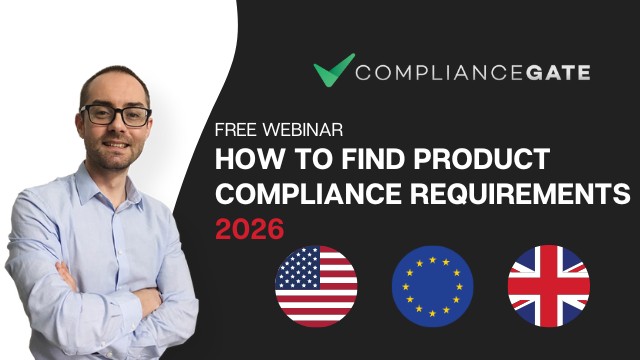





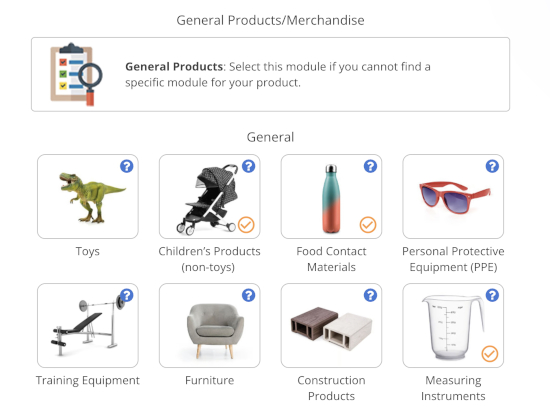





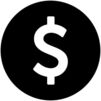
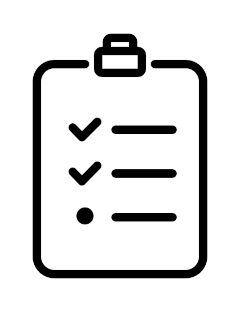


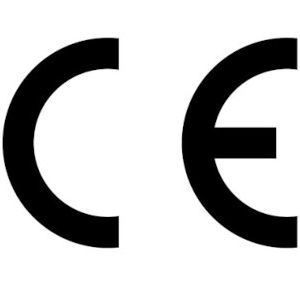




.png)
.png)
.png)
